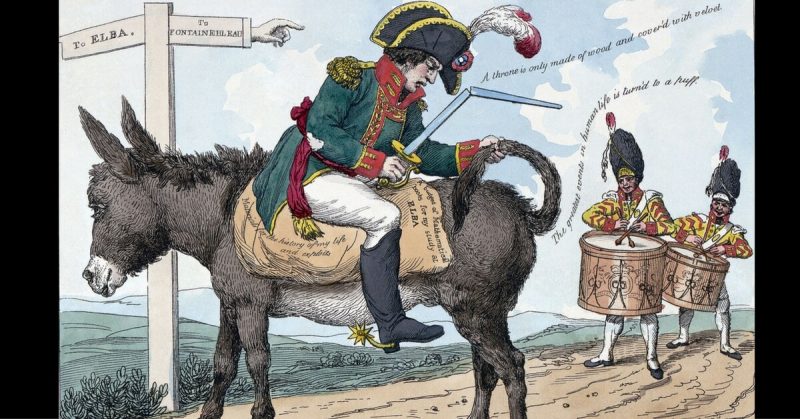Napoleon Bonaparte was one of the greatest commanders in military history. Under his command, French forces crossed the length of Europe, leveling empires and bringing their strongest opponents to their knees.
Given his gifts and achievements, why was Napoleon ultimately defeated?
By the end of the Napoleonic era, France had been fighting her neighbors and her own people continuously for over 30 years. The generation that had grown up in the shadow of the revolution had also lived in the shadow of perpetual war. First to fend off invaders set on restoring the Bourbon monarchy, then to conquer territory in the interests of glory and revolutionary values.
It was an exhausting experience. Hundreds of thousands of young men had been conscripted into the army and were then lost on the battlefields of Europe. The nation was growing weary, its resources running out and its people unable to indefinitely sustain even such successful wars.
Over-Ambition
Napoleon had a grand vision for himself and his country. He wanted to be a new Alexander the Great or Julius Caesar. Only the most ambitious of endeavors could have the impact his heroes had achieved.
It was this that led him to a succession of wars that spanned a continent. It led him to attain much, but also to go too far. No time was left to consolidate what had already been taken. Wars were launched on multiple fronts, most famously the invasion of Russia while his troops were fighting the British in the Iberian Peninsula. The Emperor bit off more than he could chew.
Losing his Flexibility
In his early campaigns, Napoleon was an agile commander who showed great intellectual and tactical flexibility. Through swift and cunning movement, he outmaneuvered his enemies strategically, avoiding fights he did not want, and tactically, gaining dominance on the field of battle.
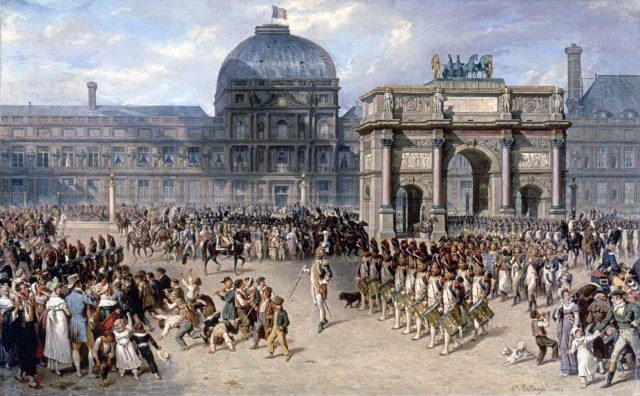
Throughout his Italian campaigns, he picked off Austrian armies piece by piece, using flanking movements to overcome defensive positions.
As he grew older, his mental agility faded. On several occasions, he resorted to trying to win by throwing thousands of men straight at the enemy. It led to great losses in his armies and less dramatic successes in battle.
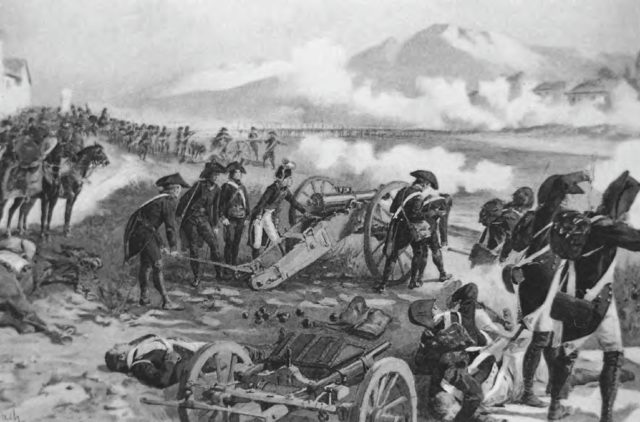
Let Down by Those Around Him
Napoleon expected a great deal of the people around him, both in their willingness to follow his agenda and their ability to achieve it. These unrealistic expectations saw parts of his schemes for Europe fall apart.
Napoleon’s Marshal Bernadotte, made Crown Prince of Sweden, sided with the Russians against his former leader.
Napoleon’s older brother Joseph, who had proved himself as an accomplished King of Naples, was unable to do the impossible and win around the conquered Spanish.
Another brother, Louis, failed to reinforce the Continental blockade when King of Holland, and looked after Dutch interests instead.
Their youngest brother, Jerome, made errors as a general, both in his approach to the invasion of Russia and his leadership of troops at Waterloo.
British Naval Power
From the start, the British Navy far outmatched that of France. An oceanic superpower whose fleet dominated the seas, Britain repeatedly beat France. The most famous defeats were both delivered by Admiral Nelson, who destroyed Napoleon’s transport fleet at the Battle of the Nile and then smashed a Franco-Spanish force at Trafalgar, where the British Admiral lost his life.
British control of the seas limited France’s ability to maneuver globally and allowed them to land troops in the Spanish Peninsula. It gave the British a huge edge in economic warfare.
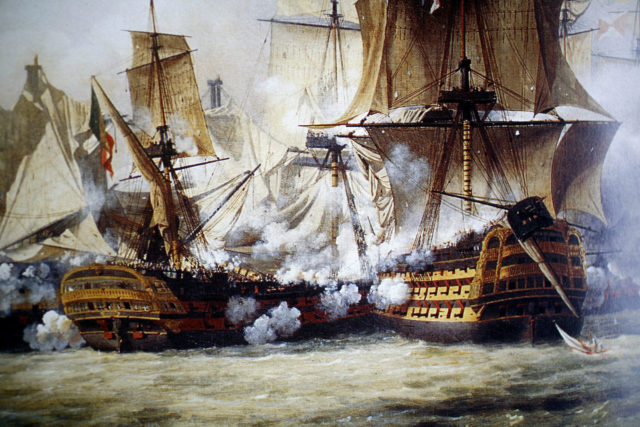
Fighting and Losing an Economic Battle
Napoleon recognized the only way he could defeat the British was by crippling their economy. That way, he could destroy their ability to wage war.
As a mercantile nation, the British were reliant upon international trade. Napoleon, therefore, tried to win the economic war through the Continental System, a blockade of British trade at ports across Europe. It was easier to enforce in some areas than others. Anywhere directly controlled by France, Napoleon could order the system into place. Elsewhere, he had to win cooperation through diplomacy.
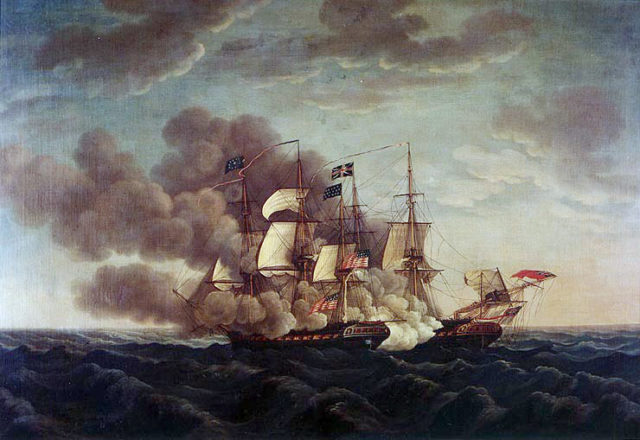
The system was full of holes. Occupied territories became resentful of the imposition, stirring opposition to the French. France’s Atlantic ports were hit hard by the British counter-blockade, their trade and supporting industries badly savaged. In the Netherlands, Napoleon’s brother failed to crack down on smuggling, while in Russia the Tsar gave up on the blockade as unhelpful for his nation.
Not only did the Continental System fail to cripple Britain, it also damaged France’s own economy.
Britain was left free not just to fund her forces but to subsidize those of her allies.
The Sixth Coalition
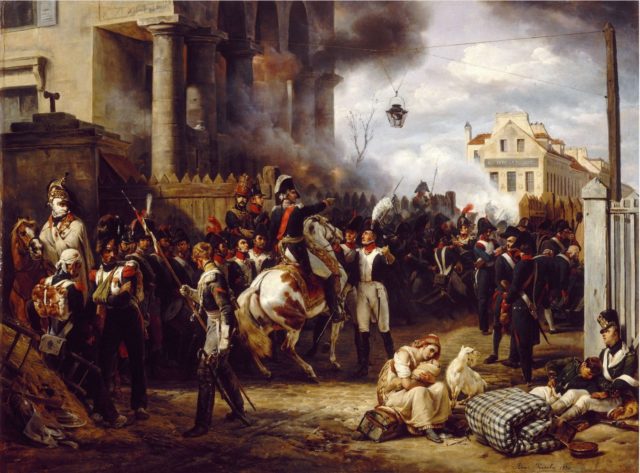
The seemingly endless French invasions finally mobilized the other great powers of Europe to unite. After a series of failed alliances, they came together in the Sixth Coalition.
Between the driving determination of Tsar Alexander of Russia; the international influence of Austria; the freshly mobilized and experienced armies of Prussia; and the financial and military power of Great Britain, this alliance was finally able to push Napoleon’s troops back into France and defeat them there. He had offended too many people, leaving his nation without potential allies. The Coalition finally brought together enough strength to bring him down.
Inability to Compromise
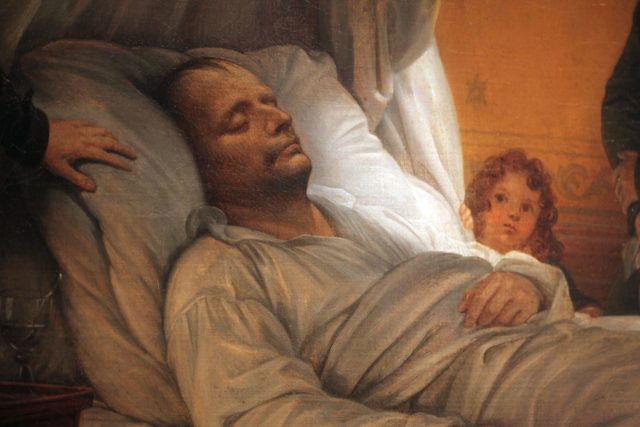
To the end, Napoleon refused any chance to salvage his achievements. Rather than sue for peace, he continued fighting the Coalition, even as they crossed the French borders. His followers had to remove him from power rather than face destruction.
His return in the Hundred Days War followed a similar pattern. The swift collapse of the Bourbon regime and Napoleon’s popularity were powerful bargaining chips. Europe was tired of war. If he had been willing to negotiate, he might have secured his return, or at least left the throne to his son.
Napoleon always had to win on his terms. Ultimately, that led him to lose.
Sources:
Geoffrey Ellis (1991), The Napoleonic Empire.
Alan Forrest (2011), Napoleon.
Robert Harvey (2006), The War of Wars: The Epic Struggle Between Britain and France: 1789-1815.
